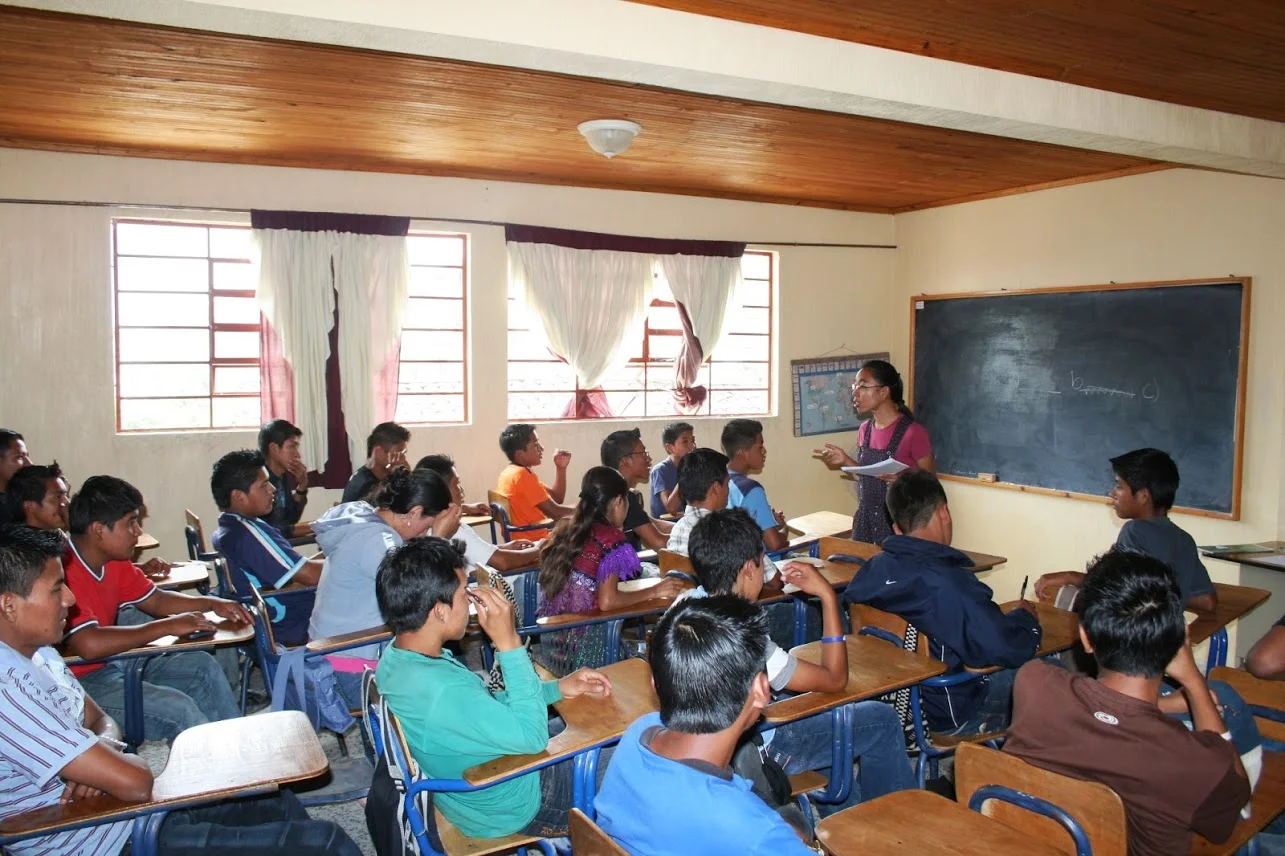
We believe that
Education Empowers Generations.
The Sister Celeste Derr Foundation works in the Department of Quiche in Guatemala to provide scholarships for junior high, high school, college and professional school students from poor families, and to fund a team of psychologists and educators operating an experimental support program for disabled students and their families.
Established in 2006 to support Mayan youth in San Andres Sajcabaja, Quiche whose education had been disrupted by Guatemala’s 40 year civil war, the Foundation provided scholarships and funded an alternative school offering a manageable class schedule and instructors who spoke the indigenous language of the region. After concluding that effort and closing the school in 2019, the Foundation expanded its scholarship program and launched its work with disabled students in 2020. The Foundation will directly benefit more than 200 students in 2025.
By the
Numbers.
14%
UNIVERSITY AND PROFESSIONAL SCHOOL SCHOLARSHIPS AS WELL AS BOARDING SCHOOL SCHOLARSHIPS FOR YOUNG WOMEN >
49%
Other Secondary Education Scholarships
37%
Disabled Student Program

Our Mission
Five hundred years of subjugation has made life for the Mayan population in Guatemala's rural highlands very difficult. Education holds the promise of advancement for Mayan families and the entire country; but even the modest expenses of public school education are unaffordable for many and advanced schooling for the more motivated or special attention for those with learning challenges is unavailable or affordable. The Derr Foundation has sought to address those problems in both ordinary and unusual ways for more than 20 years. In 2025 the Foundation is providing scholarships to students from seventh grade through graduate school and customized educational and psychological support for students with special needs and their classroom teachers in San Andres Sajcabaja, Chinique, Chiche, Nebaj and Chichicastenango, small, largely indigenous communities in the Department of Quiche, one of the country's poorest regions. The Foundation works with Guatemalan non-governmental organizations and community activists who select and supervise its scholarship recipients and with a small, well run non-governmental organization in Quiche that designed and now runs its program for special needs youth.
Backstory
Quiche and much of the rest of indigenous Guatemala suffered horribly during Guatemala’s ugly thirty-six year civil war. The government and the guerrillas terrorized the indigenous population, and the US-supported army occupied many isolated communities and tortured and killed those they believed sympathized with the guerrillas. Peace Accords were finally signed in 1996, and today the Guatemalan people aspire to overcome pervasive poverty, corruption and crime and to secure a functioning democracy and a healthy economy. Education is key to that effort.
When the violence subsided in the 1990s, Sister Celeste Derr and others restarted and expanded a primary and middle school in San Andres Sajcabaja geared to students whose education was interrupted by the civil war and who were too old and too much needed by their families to attend a full schedule of classes and who had acquired due to isolation during the violence only their indigenous language and little Spanish, the language of business and government.
By 2006 nine classrooms, an office and kitchen were constructed and classes and independent study developed along with a scholarship program for the most capable and motivated middle school, high school and college students, including boarding school scholarships for girls and young women who were prepared to leave home to attend school in Chichicastenago, an important center of Mayan culture a couple hours distant.
When Sister Celeste left San Andres in 2006, supporters of these efforts formed the Derr Foundation, a Michigan non-profit corporation with tax exempt status, to continue her work by providing quality teachers with good salaries and other resources and by helping to plan and execute well designed school and scholarship programming.
Then in 2020 the Foundation shifted its focus. It closed its school because it had finished schooling the student population in the vicinity directly affected by the war and because the Guatemalan government had introduced credible public education programs, it enlarged its scholarship program and it inaugurated a comprehensive program of services for special needs students in the area including instructional guidance for students, their families and classroom teachers as well as specialized medical support using psychologists, master teachers and social workers.
This work is supported by generous donors who want to encourage hopefulness and initiative among exploited and marginalized people.